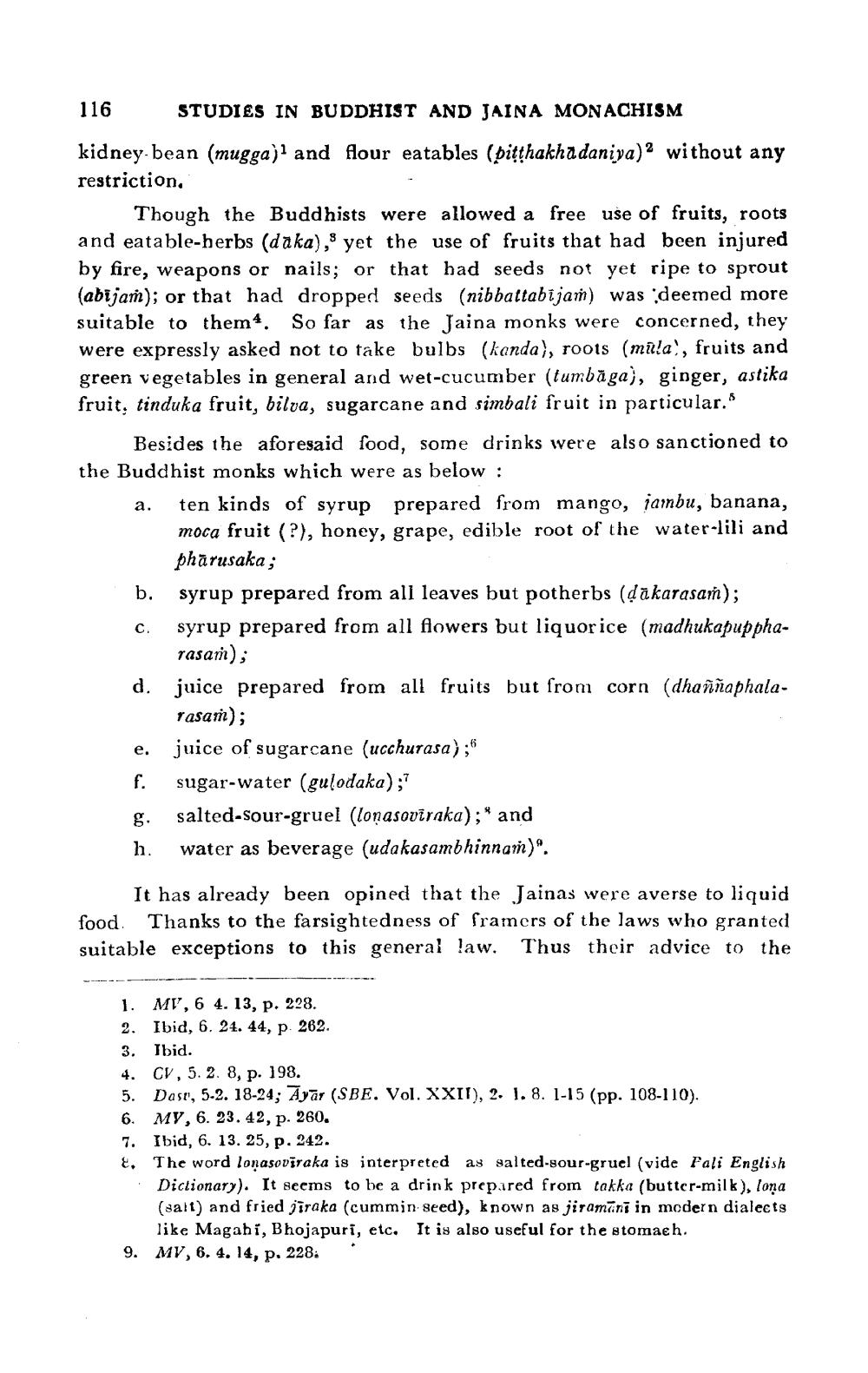________________
116 STUDIES IN BUDDHIST AND JAINA MONACHISM kidney bean (mugga)? and four eatables (pitthakhadaniya)2 without any restriction,
Though the Buddhists were allowed a free use of fruits, roots and eatable-herbs (daka), yet the use of fruits that had been injured by fire, weapons or nails; or that had seeds not yet ripe to sprout (abijam); or that had dropped seeds (nibbattabijam) was deemed more suitable to them. So far as the Jaina monks were concerned, they were expressly asked not to take bulbs (kanda), roots (mula), fruits and green vegetables in general and wet-cucumber (tumbāga), ginger, astika fruit, tinduka fruit, bilva, sugarcane and simbali fruit in particular."
Besides the aforesaid food, some drinks were also sanctioned to the Buddhist monks which were as below:
a. ten kinds of syrup prepared from mango, jambu, banana,
moca fruit (?), honey, grape, edible root of the water-lili and
phārusaka; b. syrup prepared from all leaves but potherbs (dakarasan);
syrup prepared from all flowers but liquorice (madhukapuppha
rasan); d. juice prepared from all fruits but from corn (dhaññaphala
rasaṁ);
juice of sugarcane (ucchurasa); 6 f. sugar-water (gulodaka);" g. salted-sour-gruel (lonasovīraka);* and h. water as beverage (udakasambhinnaṁ)".
It has already been opined that the Jainas were averse to liquid food. Thanks to the farsightedness of framers of the laws who granted suitable exceptions to this general law. Thus their advice to the
1. MI, 6 4.13, p. 228. 2. Ibid, 6. 24. 44, p. 262. 3. Ibid. 4. CV, 5.2. 8, p. 198. 5. Dasr, 5-2. 18-24; Ayar (SBE. Vol. XXII), 2. 1. 8. 1-15 (pp. 108-110). 6. MY, 6. 23. 42, p. 260. 7. Ibid, 6. 13. 25, p. 242. &. The word lonasoviraka is interpreted as salted-sour-gruel (vide Fali English
Dictionary). It seems to be a drink prepared from takka (butter-milk), lona (salt) and fried jiraka (cummin seed), known as jiramani in modern dialects
like Magahi, Bhojapuri, etc. It is also useful for the stomach. 9. MV, 6. 4. 14, p. 228.




